Last Address Tribute Walk: Harlem
05.28.2022

Starting location: Maysles Documentary Center
The Studio Museum in Harlem and Visual AIDS are thrilled to present Last Address Tribute Walk: Harlem. Initially proposed by poet, artist, and activist Pamela Sneed, the Last Address Tribute Walk: Harlem honors sites, people, and histories of Harlem critical to understanding the artistic and creative aspects of the AIDS epidemic.
The event will begin at Maysles Documentary Center with a short screening of Ira Sachs’s film Last Address (2010) and opening remarks by Pamela Sneed. Doors open at 2:30 pm and the screening will begin promptly at 3 pm. The tribute walk will depart from Maysles at 3:30 pm.
Starting location: Maysles Documentary Center | 343 Lenox Avenue and Malcolm X Boulevard, New York, NY 10027
Last Address Tribute Walk: Harlem will be approximately 1.3 miles in length.
The event will be live-streamed on Instagram via @studiomuseum.
ASL interpretation provided by Deaflink.

LATW route information
Last Address Tribute Walk: Harlem Route
Tracey Africa and David Ultima at the former address of Elks Lodge (160 West 129th Street)
Elks Lodge was an important site in Harlem’s ballroom scene during the 1980s. Featured in Paris is Burning, It served as an underground creative performance venue and fostered a community that provided care and support to those living with HIV/AIDS. Pioneering Legendary Ballroom Icons Tracey Africa and David Ultima both walked balls at Elks Lodge in the 1980s. Michael Henry Adams at the former address of Lenox Lounge (288 Malcolm X Boulevard)
Lenox Lounge was an iconic Harlem bar that hosted a popular LGBTQ party in the early 2000s. Michael Henry Adams is a Harlem-based historian, preservationist, and writer. Robert Penn at the last address of B.Michael Hunter (123 West 117th Street)
B.Michael Hunter was a member of the Black gay writers collective Other Countries, an educator, and community advocate for Black queer people. He passed away in 2001 in this home, with loved ones by his side. Robert Penn was a friend of B.Michael Hunter and a fellow member of Other Countries. Suki Terada Ports at the former address of Minority Task Force on AIDS (92 St. Nicholas Avenue)
Minority Task Force on AIDS provided support services to people of color living with HIV/AIDS, as well as to their families, friends, and caregivers. Over time, the organization shifted its focus and continues to provide services in Harlem as FACES NY.
In the summer of 2021, in preparation for the Harlem Walk, Visual AIDS and the Studio Museum gathered archival materials and abundant community knowledge in collaboration with AIDS activists and artists documenting Black queer histories, resulting in the Last Address Tribute Walk: Harlem resource page.
Visual AIDS’ annual Last Address Tribute Walk revisits the former home addresses of artists lost to AIDS, as well as locations shaped by HIV and AIDS activism and queer cultural history in New York City. Inspired by Ira Sachs’s film Last Address (2010) and conceived and led by curator and art historian Alex Fialho, past iterations of the Last Address Tribute Walk featured doorstep readings in the neighborhoods of the East Village (2014), Chelsea (2015), the Lower East Side (2016), the West Village (2017), the Meatpacking District (2018), and Times Square (2019). This is the eighth Last Address Tribute Walk and the first of its kind in Harlem.
Although the information here points to a specific time in Harlem’s past, it also captures a living history. In Harlem, balls still happen, AIDS housing and services are still offered, and many early AIDS organizations, such as Harlem United and Gay Men of African Descent, have since grown and expanded.
LATW walk speakers
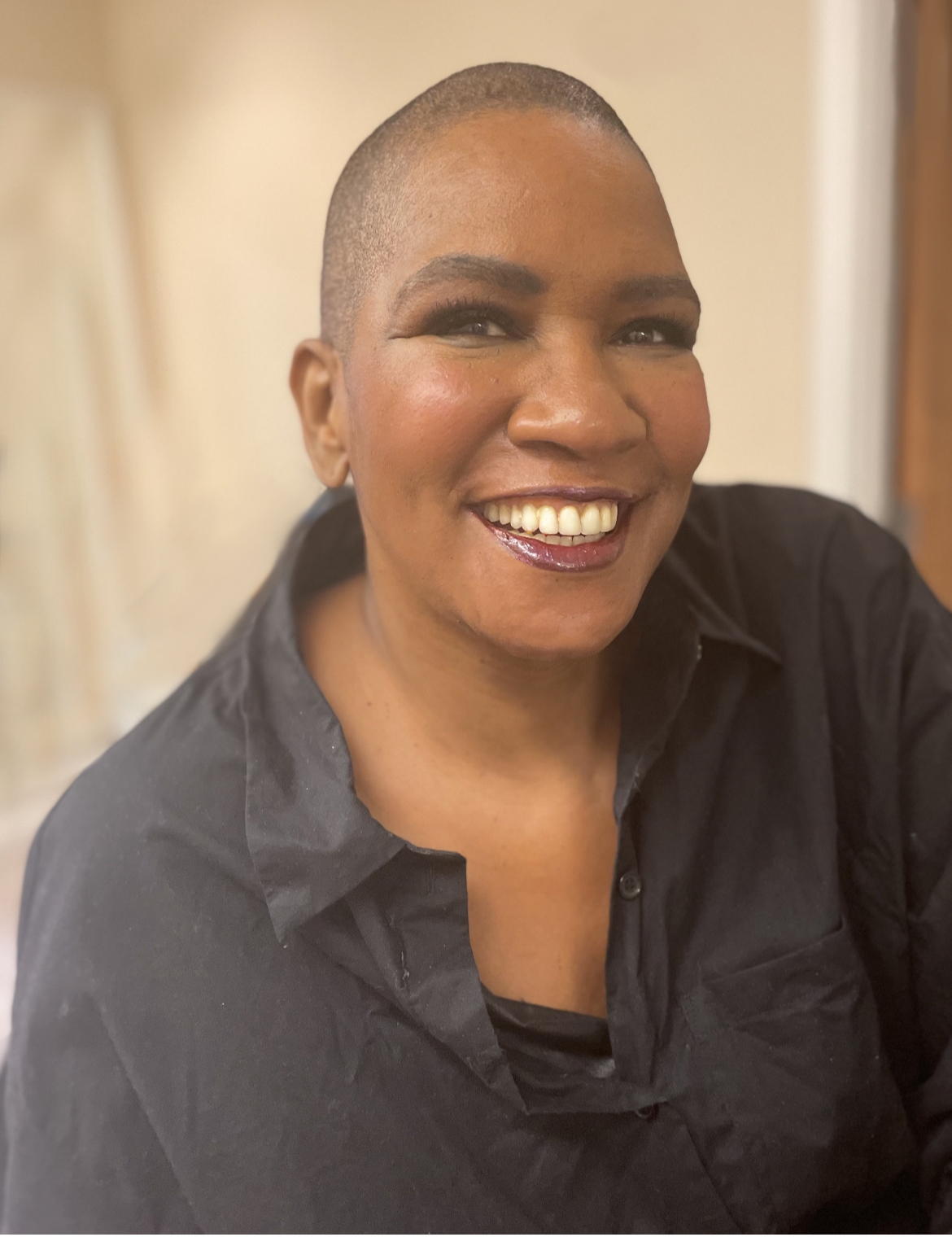
Pamela Sneed
Pamela Sneed is a New York-based poet, performer, and visual artist. She is the author of Imagine Being More Afraid of Freedom Than Slavery (Henry Holt, 1998), KONG and Other Works (Vintage Entity Press, 2010), Sweet Dreams (Belladonna Collaborative, 2018), and Funeral Diva (City Lights, 2020). Funeral Diva was featured in the New York Times, Publishers Weekly, Lit Hub, Artnet, and more. Funeral Diva won the 2021 Lambda Lesbian Poetry Award. Funeral Diva was recommended by the New York Times alongside Baraka Obama’s memoir. In 2021, she was a panelist for David Zwirner Gallery’s More Life exhibit and has spoken at Bard Center for Humanities, the Ford Foundation, the Gordon Parks Foundation, Columbia University, the New School, New York Public Library, the Brooklyn Museum, MoMA, Dia Art Foundation, and NYU’s Center For Humanities. She has published in the Paris Review, Frieze, Artforum, the Academy of American Poets, and more. She has contributed essays to Nona Faustine’s White Shoes, and Leeza Meksin’s Turret Tops. She has written the preface to Simon(e) Van Saarloos’s Take ‘Em Down, forthcoming from Publication Studio in 2022. Her visual work was featured in the group show Omniscient at Leslie Lohman Museum. Sneed is the narrator for Coco Fusco’s short film, Your Eyes Will Be an Empty Word (2021), which is on view in the 2022 Whitney Biennial.
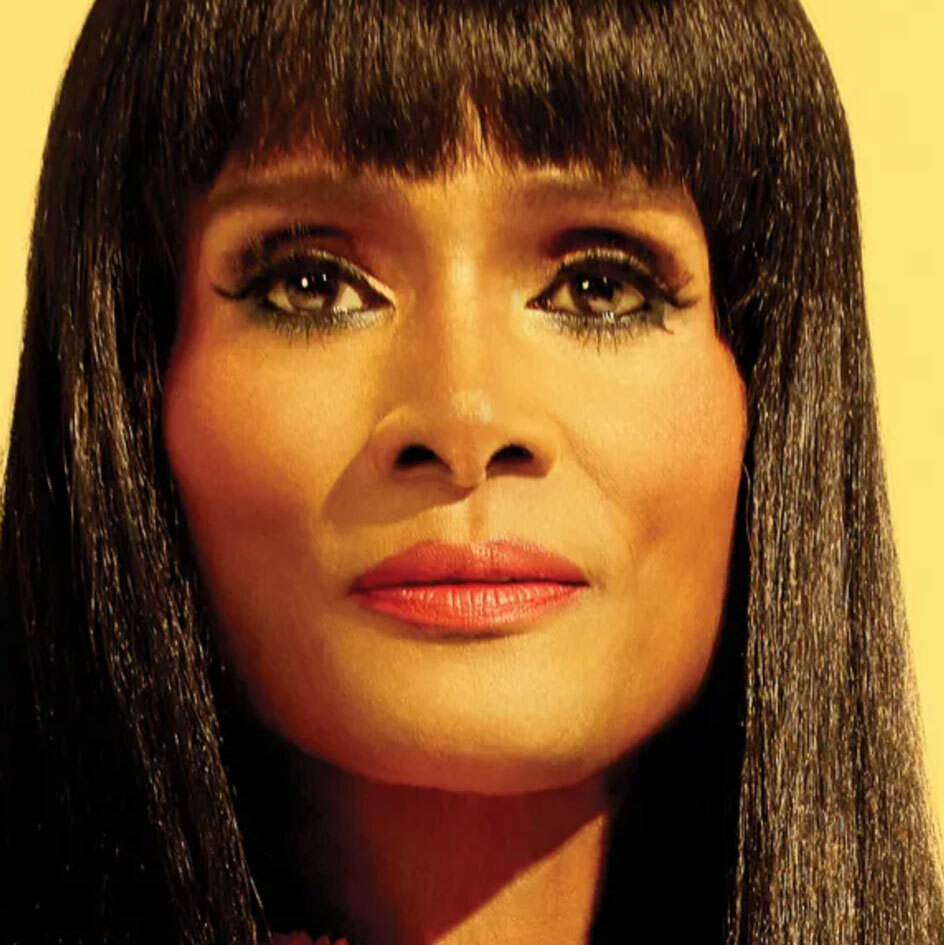
Tracey Africa
Tracey Africa is an accomplished professional model who made history as the first Black model of trans experience to secure a major modeling contract. She then became one of the top twenty-five Black working models of the 1970s and 80s. She is also a daughter of the ballroom subculture, which is rooted in the great tradition of Harlem.
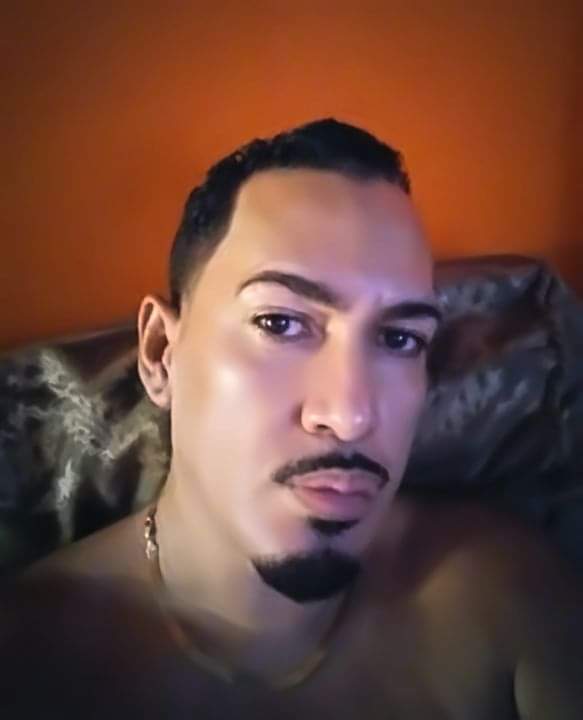
David Ultima
David Ultima is a pioneering, legendary ballroom icon who began walking in balls in the 1970s. He is most known for having walked numerous face categories and snatching many trophies. He is a former father of the House of Xtravaganza before moving on to establish his own house, the House of Ultima, in 1991. Outside of ballroom, he also established his own clothing line, Ultima Couture.
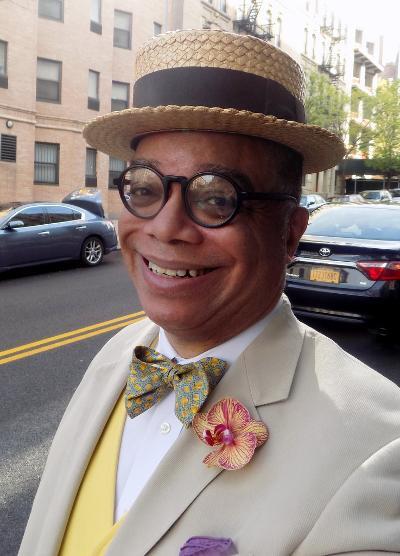
Michael Henry Adams
Born in Akron, Ohio, Michael Henry Adams is an accomplished writer, lecturer, historian, tour guide, and activist, living in Harlem. A fine arts graduate of the University of Akron, Michael trained in Columbia University's graduate historic preservation program, as well as studying English country houses at the Attingham Summer School. His books include Harlem, Lost and Found; An Architectural and Social History, 1765–1915 (Monacelli Press, 2001) and Style and Grace; African Americans at Home (Bullfinch, 2002). Currently, he's at work on the forthcoming Homo Harlem, A Chronicle of Lesbian and Gay Life in the African American Cultural Capital, 1915-1995. He is a passionate supporter of historic preservation and helped start Save Harlem Now!. He enjoys Harlem restaurants and espouses equality and justice for all.
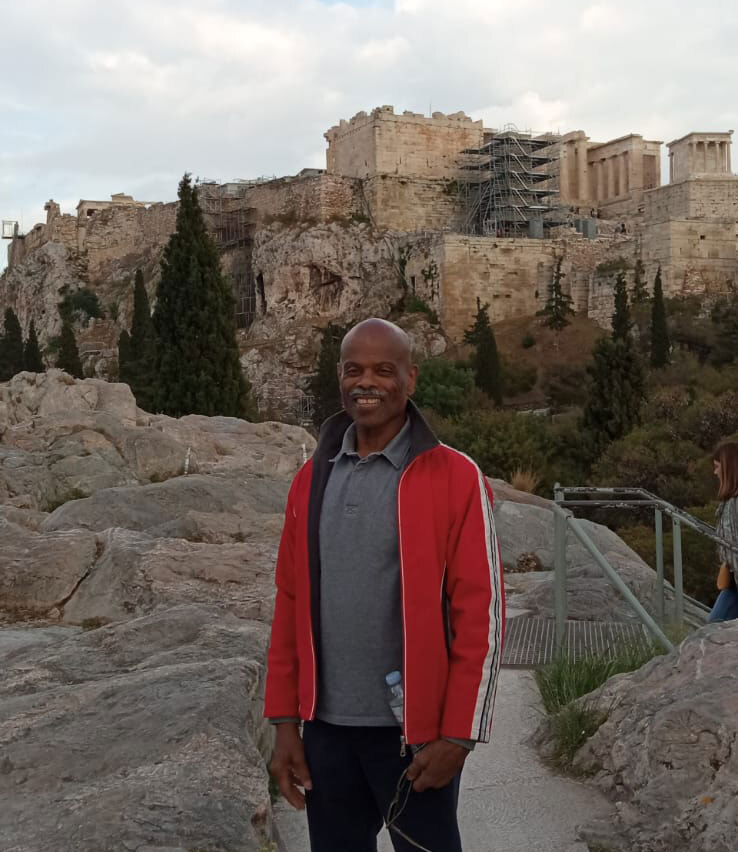
Robert E. Penn
Robert E. Penn is a writer, digital filmmaker, and producer. Since 1990, his essays and stories about Black LGBTQ+ people and HIV life have appeared in magazines, anthologies, and e-publications. Penn is the author of The Gay Men’s Wellness Guide (Henry Holt & Company, 1998). His digital films include public service announcements, documentaries, event and performance documentation, and experimental narratives. Examples of his work can be viewed at vimeo.com/robertpenn. Penn is currently developing a child-friendly, animated television series inspired by traditional respect for ancestors he experienced in rural Africa, and chronicling his love relationship that overcame barriers of race, nationality, and separation. He celebrates nature-centered cultures that shape his worldview, and liberates himself from capitalist imperialism by uprooting internalized colonialism from his heart and behavior, and exposing misinformative stereotyping, micro-aggression, gaslighting, and normalized personal and public bullying that facilitates and perpetuates “deniable” white supremacy in the United States.
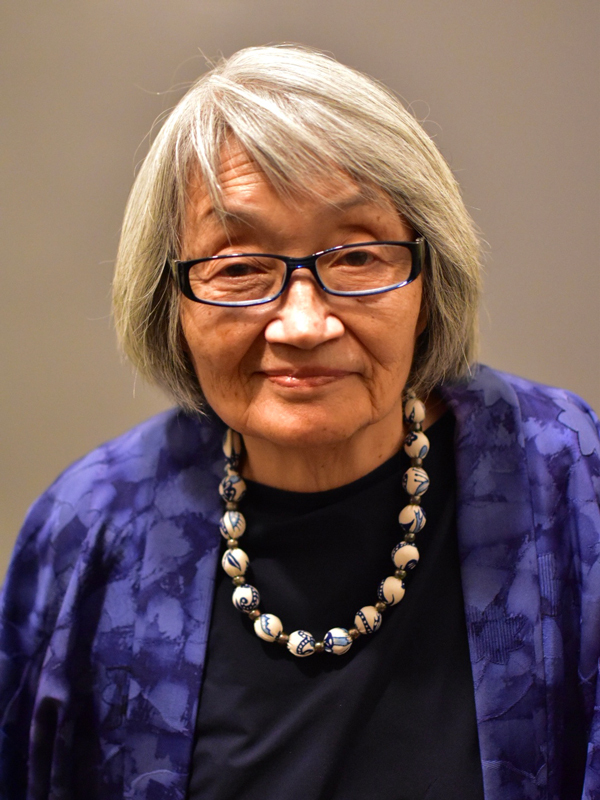
Suki Terada Ports
The child of parents directly affected by United States policies against the Japanese community during World War II, Suki Terada Ports has dedicated her life to fighting for social justice, beginning with issues of school integration, community empowerment to ensure that housing and parkland were protected from institutional expansion, and quality health care access. In 1985, the New York City Council of Churches tapped Ports to organize a conference for their clergy and other community leaders about the implications of AIDS in minority communities. Issues included dealing with stigma, fear of infection, and the lack of prevention information. The conference led to the formation of Minority Task Force on AIDS, the first organization of its kind in New York City, which Ports directed. This experience inspired her to help launch programs for specific communities such as the National Minority AIDS Council, the Asian and Pacific Islander Coalition on HIV/AIDS, Iris House, and in 1989, the Family Health Project. Her service on many boards of not-for-profit organizations includes the Japanese American Association of New York and the New York Women’s Foundation. Among her many awards, she has received the Smith College Medal and the Emperor of Japan's Order of the Rising Sun, Gold and Silver Rays.
LATW Walk Resources
Last Address Tribute Walk: Harlem Resource Page
What I Miss? B.Michael Hunter (1958–2001)
Blog post by Alex Fialho about Visual AIDS and Last Address Tribute Walk
The First Black Trans Model Had Her Face on a Box of Clairol
Needed (For Women and Children) by Suki Terada Ports
LATW funder credits
For additional resources on the Last Address Tribute Walk: Harlem speakers, download the Bloomberg Connects app and explore The Studio Museum in Harlem's free digital guide.
The Studio Museum in Harlem gratefully acknowledges the support of inHarlem donors including the Stavros Niarchos Foundation, Institute of Museum and Library Services, and JPMorgan Chase & Co.; additional support is generously provided by The New York City Department of Cultural Affairs, New York State Council on the Arts with the support of the New York State Legislature, and the New York City Council; the Museum recognizes the generosity and knowledge of community members in realizing this project.
Visual AIDS’ public programming is supported by the Lambent Foundation Fund of the Tides Foundation, The Shelley & Donald Rubin Foundation, Alphawood Foundation, Marta Heflin Foundation, NYC Department of Cultural Affairs, and other foundations, corporations, and government entities.
Last Address Tribute Walk: Harlem
05.28.2022

Starting location: Maysles Documentary Center
The Studio Museum in Harlem and Visual AIDS are thrilled to present Last Address Tribute Walk: Harlem. Initially proposed by poet, artist, and activist Pamela Sneed, the Last Address Tribute Walk: Harlem honors sites, people, and histories of Harlem critical to understanding the artistic and creative aspects of the AIDS epidemic.
The event will begin at Maysles Documentary Center with a short screening of Ira Sachs’s film Last Address (2010) and opening remarks by Pamela Sneed. Doors open at 2:30 pm and the screening will begin promptly at 3 pm. The tribute walk will depart from Maysles at 3:30 pm.
Starting location: Maysles Documentary Center | 343 Lenox Avenue and Malcolm X Boulevard, New York, NY 10027
Last Address Tribute Walk: Harlem will be approximately 1.3 miles in length.
The event will be live-streamed on Instagram via @studiomuseum.
ASL interpretation provided by Deaflink.

LATW route information
Last Address Tribute Walk: Harlem Route
Tracey Africa and David Ultima at the former address of Elks Lodge (160 West 129th Street)
Elks Lodge was an important site in Harlem’s ballroom scene during the 1980s. Featured in Paris is Burning, It served as an underground creative performance venue and fostered a community that provided care and support to those living with HIV/AIDS. Pioneering Legendary Ballroom Icons Tracey Africa and David Ultima both walked balls at Elks Lodge in the 1980s. Michael Henry Adams at the former address of Lenox Lounge (288 Malcolm X Boulevard)
Lenox Lounge was an iconic Harlem bar that hosted a popular LGBTQ party in the early 2000s. Michael Henry Adams is a Harlem-based historian, preservationist, and writer. Robert Penn at the last address of B.Michael Hunter (123 West 117th Street)
B.Michael Hunter was a member of the Black gay writers collective Other Countries, an educator, and community advocate for Black queer people. He passed away in 2001 in this home, with loved ones by his side. Robert Penn was a friend of B.Michael Hunter and a fellow member of Other Countries. Suki Terada Ports at the former address of Minority Task Force on AIDS (92 St. Nicholas Avenue)
Minority Task Force on AIDS provided support services to people of color living with HIV/AIDS, as well as to their families, friends, and caregivers. Over time, the organization shifted its focus and continues to provide services in Harlem as FACES NY.
In the summer of 2021, in preparation for the Harlem Walk, Visual AIDS and the Studio Museum gathered archival materials and abundant community knowledge in collaboration with AIDS activists and artists documenting Black queer histories, resulting in the Last Address Tribute Walk: Harlem resource page.
Visual AIDS’ annual Last Address Tribute Walk revisits the former home addresses of artists lost to AIDS, as well as locations shaped by HIV and AIDS activism and queer cultural history in New York City. Inspired by Ira Sachs’s film Last Address (2010) and conceived and led by curator and art historian Alex Fialho, past iterations of the Last Address Tribute Walk featured doorstep readings in the neighborhoods of the East Village (2014), Chelsea (2015), the Lower East Side (2016), the West Village (2017), the Meatpacking District (2018), and Times Square (2019). This is the eighth Last Address Tribute Walk and the first of its kind in Harlem.
Although the information here points to a specific time in Harlem’s past, it also captures a living history. In Harlem, balls still happen, AIDS housing and services are still offered, and many early AIDS organizations, such as Harlem United and Gay Men of African Descent, have since grown and expanded.
LATW walk speakers

Pamela Sneed
Pamela Sneed is a New York-based poet, performer, and visual artist. She is the author of Imagine Being More Afraid of Freedom Than Slavery (Henry Holt, 1998), KONG and Other Works (Vintage Entity Press, 2010), Sweet Dreams (Belladonna Collaborative, 2018), and Funeral Diva (City Lights, 2020). Funeral Diva was featured in the New York Times, Publishers Weekly, Lit Hub, Artnet, and more. Funeral Diva won the 2021 Lambda Lesbian Poetry Award. Funeral Diva was recommended by the New York Times alongside Baraka Obama’s memoir. In 2021, she was a panelist for David Zwirner Gallery’s More Life exhibit and has spoken at Bard Center for Humanities, the Ford Foundation, the Gordon Parks Foundation, Columbia University, the New School, New York Public Library, the Brooklyn Museum, MoMA, Dia Art Foundation, and NYU’s Center For Humanities. She has published in the Paris Review, Frieze, Artforum, the Academy of American Poets, and more. She has contributed essays to Nona Faustine’s White Shoes, and Leeza Meksin’s Turret Tops. She has written the preface to Simon(e) Van Saarloos’s Take ‘Em Down, forthcoming from Publication Studio in 2022. Her visual work was featured in the group show Omniscient at Leslie Lohman Museum. Sneed is the narrator for Coco Fusco’s short film, Your Eyes Will Be an Empty Word (2021), which is on view in the 2022 Whitney Biennial.

Tracey Africa
Tracey Africa is an accomplished professional model who made history as the first Black model of trans experience to secure a major modeling contract. She then became one of the top twenty-five Black working models of the 1970s and 80s. She is also a daughter of the ballroom subculture, which is rooted in the great tradition of Harlem.

David Ultima
David Ultima is a pioneering, legendary ballroom icon who began walking in balls in the 1970s. He is most known for having walked numerous face categories and snatching many trophies. He is a former father of the House of Xtravaganza before moving on to establish his own house, the House of Ultima, in 1991. Outside of ballroom, he also established his own clothing line, Ultima Couture.

Michael Henry Adams
Born in Akron, Ohio, Michael Henry Adams is an accomplished writer, lecturer, historian, tour guide, and activist, living in Harlem. A fine arts graduate of the University of Akron, Michael trained in Columbia University's graduate historic preservation program, as well as studying English country houses at the Attingham Summer School. His books include Harlem, Lost and Found; An Architectural and Social History, 1765–1915 (Monacelli Press, 2001) and Style and Grace; African Americans at Home (Bullfinch, 2002). Currently, he's at work on the forthcoming Homo Harlem, A Chronicle of Lesbian and Gay Life in the African American Cultural Capital, 1915-1995. He is a passionate supporter of historic preservation and helped start Save Harlem Now!. He enjoys Harlem restaurants and espouses equality and justice for all.

Robert E. Penn
Robert E. Penn is a writer, digital filmmaker, and producer. Since 1990, his essays and stories about Black LGBTQ+ people and HIV life have appeared in magazines, anthologies, and e-publications. Penn is the author of The Gay Men’s Wellness Guide (Henry Holt & Company, 1998). His digital films include public service announcements, documentaries, event and performance documentation, and experimental narratives. Examples of his work can be viewed at vimeo.com/robertpenn. Penn is currently developing a child-friendly, animated television series inspired by traditional respect for ancestors he experienced in rural Africa, and chronicling his love relationship that overcame barriers of race, nationality, and separation. He celebrates nature-centered cultures that shape his worldview, and liberates himself from capitalist imperialism by uprooting internalized colonialism from his heart and behavior, and exposing misinformative stereotyping, micro-aggression, gaslighting, and normalized personal and public bullying that facilitates and perpetuates “deniable” white supremacy in the United States.

Suki Terada Ports
The child of parents directly affected by United States policies against the Japanese community during World War II, Suki Terada Ports has dedicated her life to fighting for social justice, beginning with issues of school integration, community empowerment to ensure that housing and parkland were protected from institutional expansion, and quality health care access. In 1985, the New York City Council of Churches tapped Ports to organize a conference for their clergy and other community leaders about the implications of AIDS in minority communities. Issues included dealing with stigma, fear of infection, and the lack of prevention information. The conference led to the formation of Minority Task Force on AIDS, the first organization of its kind in New York City, which Ports directed. This experience inspired her to help launch programs for specific communities such as the National Minority AIDS Council, the Asian and Pacific Islander Coalition on HIV/AIDS, Iris House, and in 1989, the Family Health Project. Her service on many boards of not-for-profit organizations includes the Japanese American Association of New York and the New York Women’s Foundation. Among her many awards, she has received the Smith College Medal and the Emperor of Japan's Order of the Rising Sun, Gold and Silver Rays.
LATW Walk Resources
Last Address Tribute Walk: Harlem Resource Page
What I Miss? B.Michael Hunter (1958–2001)
Blog post by Alex Fialho about Visual AIDS and Last Address Tribute Walk
The First Black Trans Model Had Her Face on a Box of Clairol
Needed (For Women and Children) by Suki Terada Ports
LATW funder credits
For additional resources on the Last Address Tribute Walk: Harlem speakers, download the Bloomberg Connects app and explore The Studio Museum in Harlem's free digital guide.
The Studio Museum in Harlem gratefully acknowledges the support of inHarlem donors including the Stavros Niarchos Foundation, Institute of Museum and Library Services, and JPMorgan Chase & Co.; additional support is generously provided by The New York City Department of Cultural Affairs, New York State Council on the Arts with the support of the New York State Legislature, and the New York City Council; the Museum recognizes the generosity and knowledge of community members in realizing this project.
Visual AIDS’ public programming is supported by the Lambent Foundation Fund of the Tides Foundation, The Shelley & Donald Rubin Foundation, Alphawood Foundation, Marta Heflin Foundation, NYC Department of Cultural Affairs, and other foundations, corporations, and government entities.
Starting location: Maysles Documentary Center